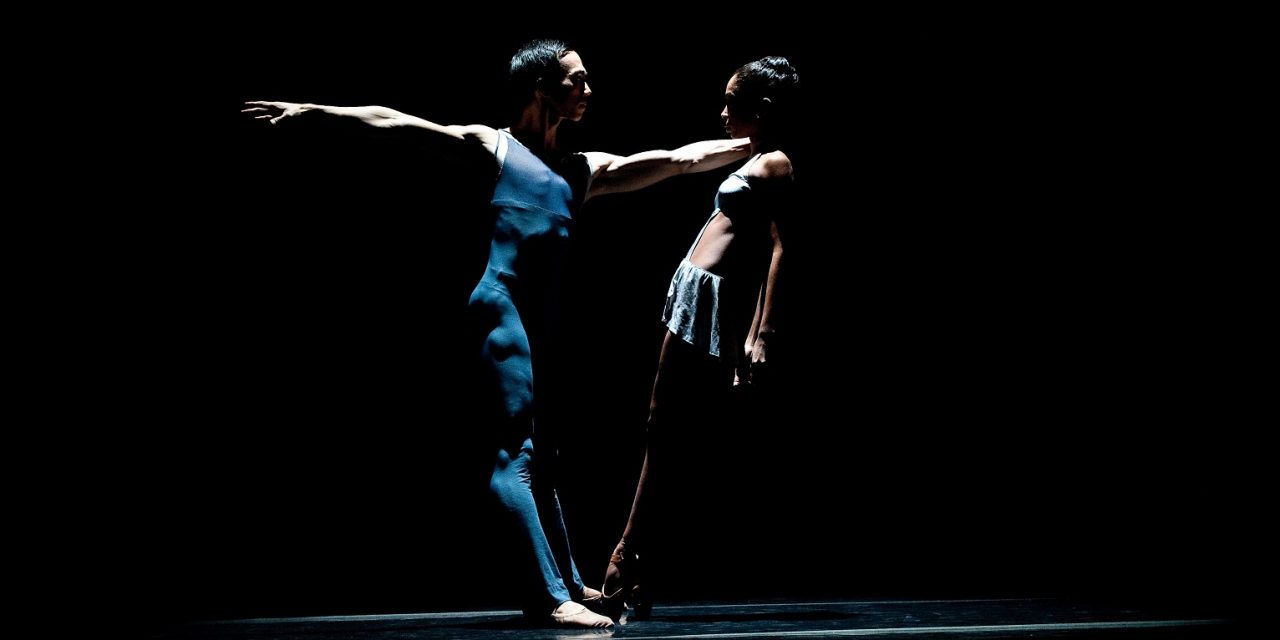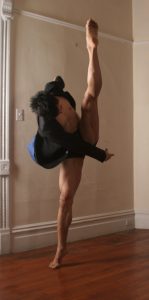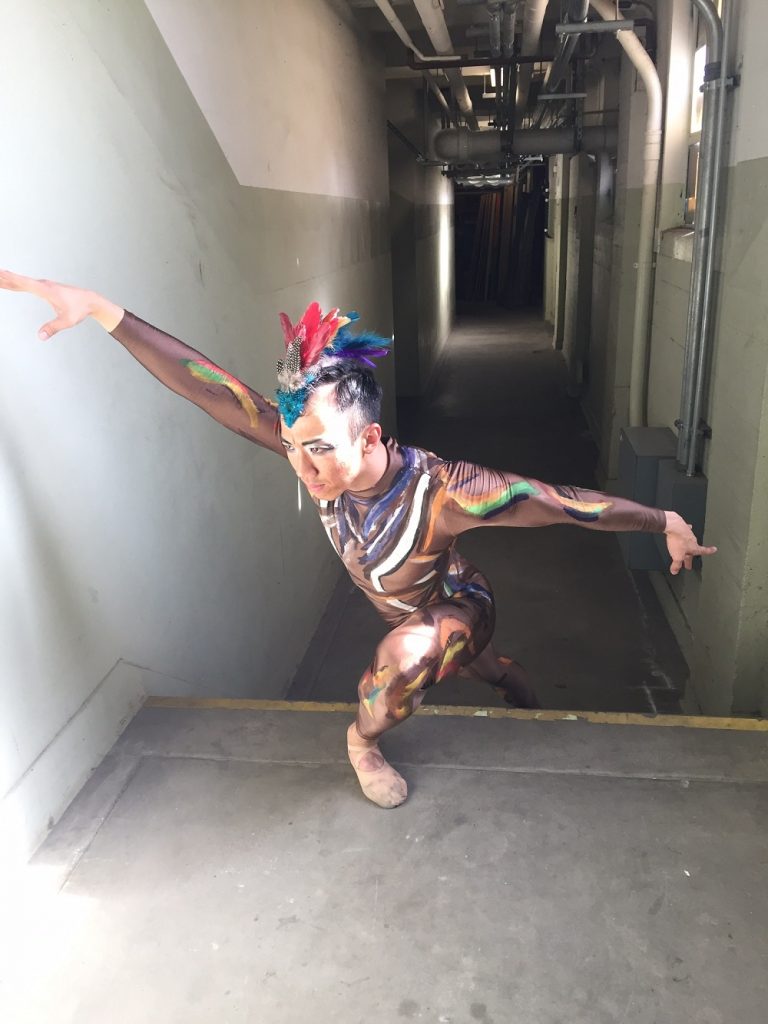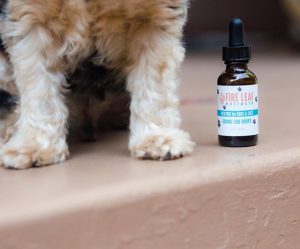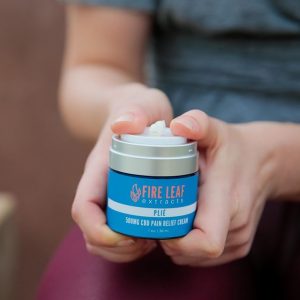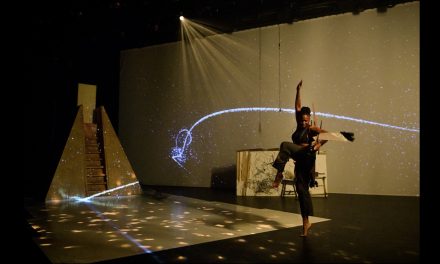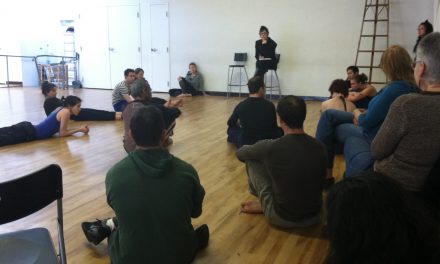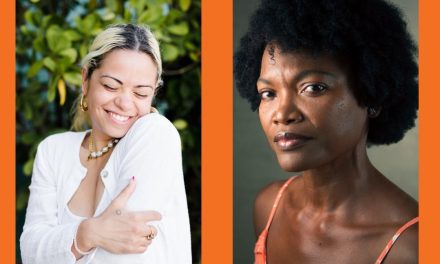If you’ve been in the Los Angeles dance scene long enough, you either know David Tai Kim or you know one of his company’s ambassadors—he’s a warm and welcoming artist, having defrosted in Southern California for the last five years following a long career with concert ballet companies around the world. He and his wife Renee (stunning dancer and ballet teacher extraordinaire) settled down in Long Beach after a few years doing circus work in Israel—we’ll get to that later—and now they’re permanent fixtures in the freelance dance community. But even though he’s not done dancing, Kim has begun to venture into some endeavors of his own. An adamant proponent of uplifting his community, he’s kickstarting a CBD company called Fire Leaf Extracts; the products, made specifically for dancers, work to relieve inflammation (for those long rehearsal days). We chatted a bit last month to talk about his incredible professional journey and the transition into entrepreneurship.
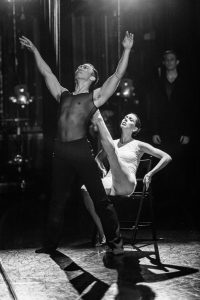
“Left Unsaid” for Barak Ballet, Choreographed by Nicolo Fonte – Dancer: Sadie Black Photo Credit – Anne Slattery
CK: Tell me about how dance came into your life.
DTK: I was a late bloomer—I vaguely recall going with my sister to dance classes as a kid, but it didn’t attract me then. I didn’t get a lot of exposure to dance until college; I was going out dancing in clubs in Hollywood, and really fell in love with it there. For a guy who had no training, it was a freeing experience to just go up there and just boogie.
In college, I went out with a dancer who thought I had enough groove to audition for the school show with her. I showed up to the call in my tank top and swim trunks…I was in good shape and pretty athletic at the time and seemed to have some underlying facility. For whatever reason, the faculty noticed, and a choreographer chose me to be in his piece. In order to perform, I was required to take modern dance class, and I absolutely fell in love with it. I threw myself into every single dance class and style I could. Once I started dancing, I started pulling straight A’s across the board—before, I had been a horrible student—and I transferred to UCI. Finding dance was a life-changing moment for me.
CK: and how did that lead to a career?
DTK: As I got more serious about dance, I stumbled into a ballet studio and got thrown into their Nutcracker. The studio owner let me take class as long as I showed up for partnering. Later, she had me audition for the Dance Theatre of Harlem summer program. Somehow, I got in (after three years of training) and I was thrown into the highest level because I was older…but not because I was capable. I had never seen three quarters of the steps they did in class. I remember spending hours in the studio doing double saut de basque over and over, staring myself down in the mirror. I missed all of that foundational men’s class, so I just had to make it happen. That’s where I met Renee—she tells me now that she remembers thinking, “that guy has no idea what he’s doing.”
DTH gave me a job in the ensemble after the summer program. I had made a vast improvement in those few months, so they really thought I could do it. I spent my summers at Boston Ballet and worked at DTH during the year. I ended up going to Ballet Met, then Ballet West, then back to New York; I like to say that I just brute-forced a career in dance.
CK: What brought you to Los Angeles?
DTK: I grew up in Long Beach. When Renee and I started dating, I brought her out here for a wedding. After one day on the west coast, she said, “I want to live here.”
Years later, we were very fortunate to go to Israel and dance in a cirque-type show. It was six shows per week there; absolutely exhausting. We had sold all of our things in New York to move there. After our contracts ended in Israel, we traveled all over Europe and stopped in California to catch our breath. Renee started teaching at a local ballet studio, and we stumbled into our life here.
CK: What was the transition from company contract to freelance/LA life like for you and Renee? The culture here is pretty different—did you have to slow down?
DTK: It was a tough one. We had been under contract for so long. Freelancing and negotiating for yourself seemed like so much work. You can kind of justify earning less money with your company contract because it’s stable. Negotiating our contracts for small gigs was tough: we didn’t know what to ask for, or how to advocate for ourselves. There was a steep learning curve. We’re used to working a little faster, a little stricter. However, working with Lois Ellen at her studio in Fullerton has been such a blessing; she has really given us a stable gig. After some searching, we found that the dancers are of a very high quality here—you just have to look for them!

“Contested Space” David Kim and Renee Kim for The Dance Theatre of Harlem, Choreographed by Donald Byrd. Photo Credit – Unknown, possibly Rachel Neville
CK: What prompted the beginnings of Fire Leaf Extracts?
DTK: When I was in Israel, I got really sick, but just pushed through it. I lost so much weight that when Renee and I came back to California and I first saw my mom, she cried at the sight of me. I had ulcers and severe knee problems and had been taking this medication with awful side effects.
Once we moved home, I wanted to improve my motor function. I tried everything—supplements, new diets, new workouts. I wanted to stay on the forefront of wellness innovation. I had heard about CBD, and a friend of mine said I should give it a try. About three years ago, right before my first rehearsal with Raiford Rogers’ Modern Ballet, I bought some CBD and asked all my colleagues to try it. I wanted to see how effective it was for everyone. The consensus? Everyone, collectively, said “I think that really works.” It was soothing and effective. A year later, I looked around the rehearsal room and everybody had their own bottle of CBD. And I realized that I should be the one providing it for them. Around the same time, I had been looking into investing in cannabis, and starting my own business in that industry. It was serendipitous.
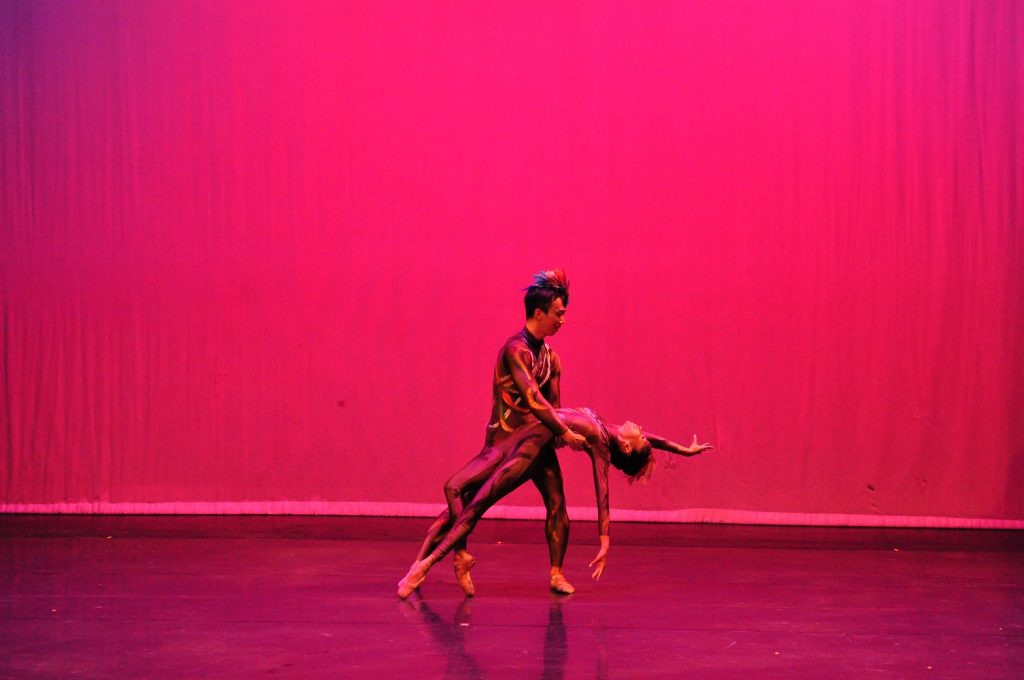
David Tai Kim in ”The Mandarin Ducks” with the Nouveau Chamber Ballet , Choreographed by Lois Ellyn – Photo courtesy of the artist.
CK: What did you learn from the transition to entrepreneurship? What skills did you find translated well from dance, and what did you have to learn on the spot?
DTK: My dance career made me disciplined and timely and gave me the understanding that you have to work in a quick and efficient fashion. I was able to sell myself and my vision and talk clearly about Fire Leaf Extracts’ mission. My business partners came in with capital contributions, which they wouldn’t have done if I was unable to tell them my plans. It’s all about putting a little performance on, and that has been a huge strength with cannabis and hemp. Especially with licensing. For licensing interviews, you have to give a show, weave a magical story for them. You have to make it compelling. Being a performer helps you do that.
There were so many logistical things I didn’t know. As a dancer, I had never even worked with Excel. Over time, I’ve become proficient and learned several programs. I’ve gathered a team that holds a lot of business degrees between them, and they have so much knowledge that helps. But I do have the entrepreneurial spirit, and I don’t think that can be taught. You need to have a grand vision and the unwavering idea that you can get the job done, and all the rest can be assembled. Being a problem-solver outside of the box is a dancer’s trademark. And of course, I want to hire dancers. I want to provide more work for them—if all things are equal, I’m going to hire a dancer.
CK: Fire Leaf has a network of brand ambassadors—dancers in LA and beyond. How have your colleagues helped further your mission, from testing to promotion?
DTK: That’s been one of the most fulfilling parts of this business: being able to make new friendships and new relationships with dancers in companies and beyond. If you know how to take a ballet class, you can communicate with people in classes worldwide. I feel very fulfilled knowing that so many of these ambassadors have come organically, because they like our product.
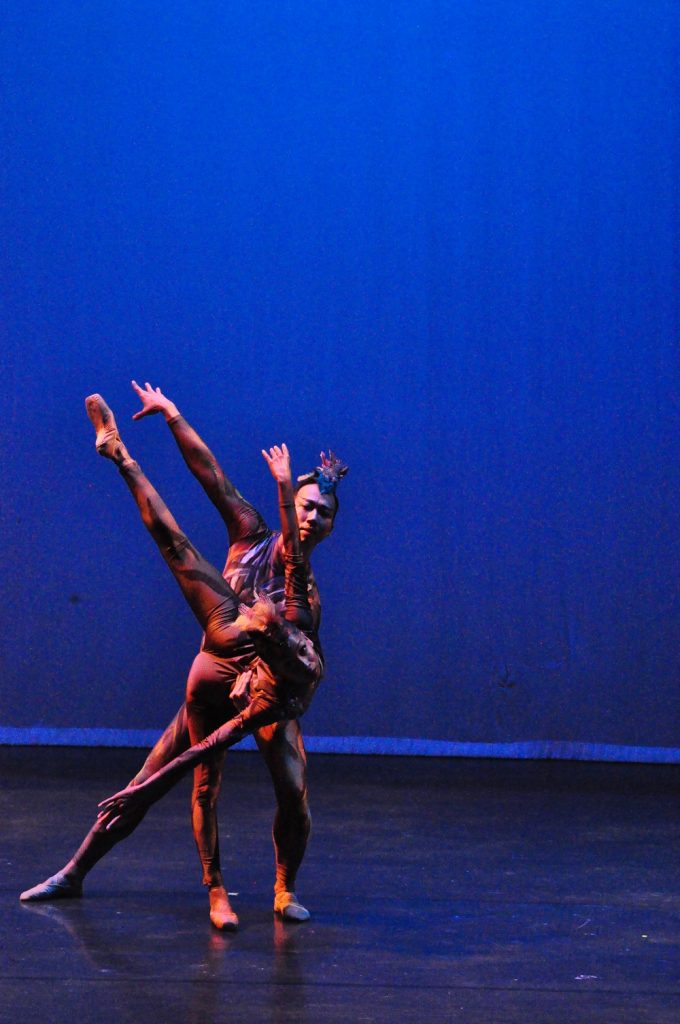
David Tai Kim in ”The Mandarin Ducks” with the Nouveau Chamber Ballet , Choreographed by Lois Ellyn – Photo courtesy of the artist.
For example, Lilliana Hagerman of Kansas City Ballet and her husband Lamin Pereira purchased a container of Plié and posted about it. I reached out to her; I’m sure we have mutual friends, but it’s come about very organically because they like our product and want to work with us. We use a lot of social media and I’d like to run a few print ads, but they’re expensive. For now, we’re going to continue to expand our ambassadorship and I’d like to have a dancer representing us in every major company. We know it’s going be helpful to them and help them stay onstage. I have a really good friend, Jon Bond, at NDT. Jeanette Kakareka just reached out to me from Germany. Anything that helps us scale out is phenomenal, and those ambassadors there could be amazing.
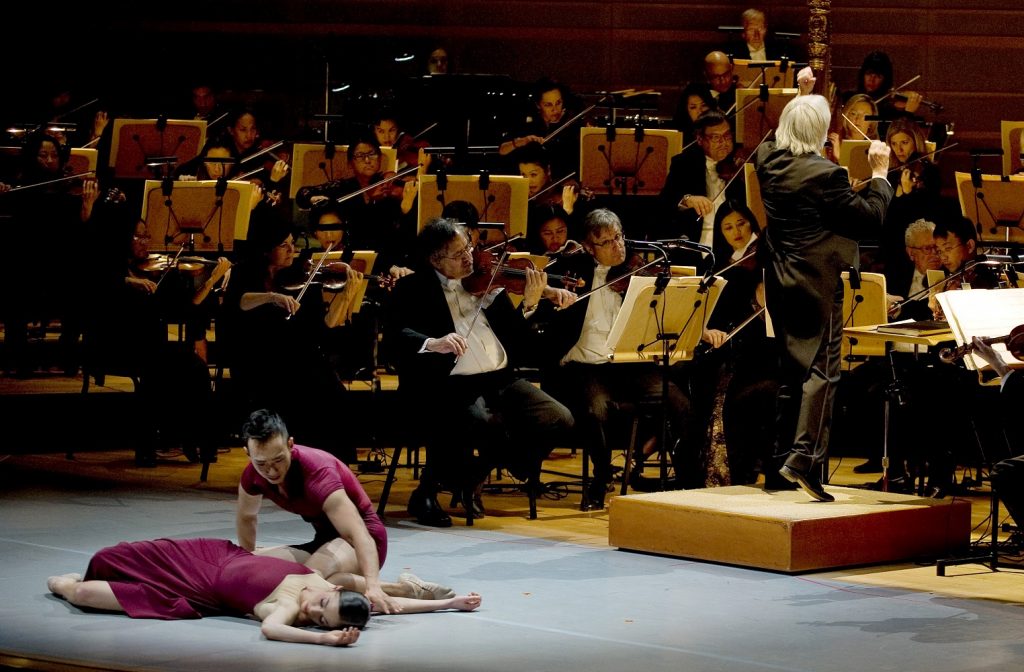
“Romeo and Juliet” Keira Schwartz with the Pacific Symphony Orchestra, Choreographed by Lorin Johnson – Photo by Nick Koon
CK: Why dancers?
DTK: Dancers work so hard for so little. Anything we buy needs to make sense for us and has to be effective. The product is made for dancers by dancers. It’s effective, and the money is worth it. We need to make products that truly work. I wanted to make that product for my friends.
And I really think this niche of dancers that we’re marketing to is underserved. Dancers are forever getting shafted, expected so much out of yet still an afterthought in the industry. I wanted to create a company that puts dancers first. Then everyone else can benefit, because it worked for us.
Fire Leaf Extracts offers CBD pain relief cream in Plié and Demi, Restore CBD drops in 500 mg and 1000 mg, and 500 mg CBD pet drops.
Written by Celine Kiner for LA Dance Chronicle, November 20, 2019.
Feature image: “Return” with The Dance Theatre of Harlem, Choreographed by Robert Garland – Photo courtesy of the artist.

